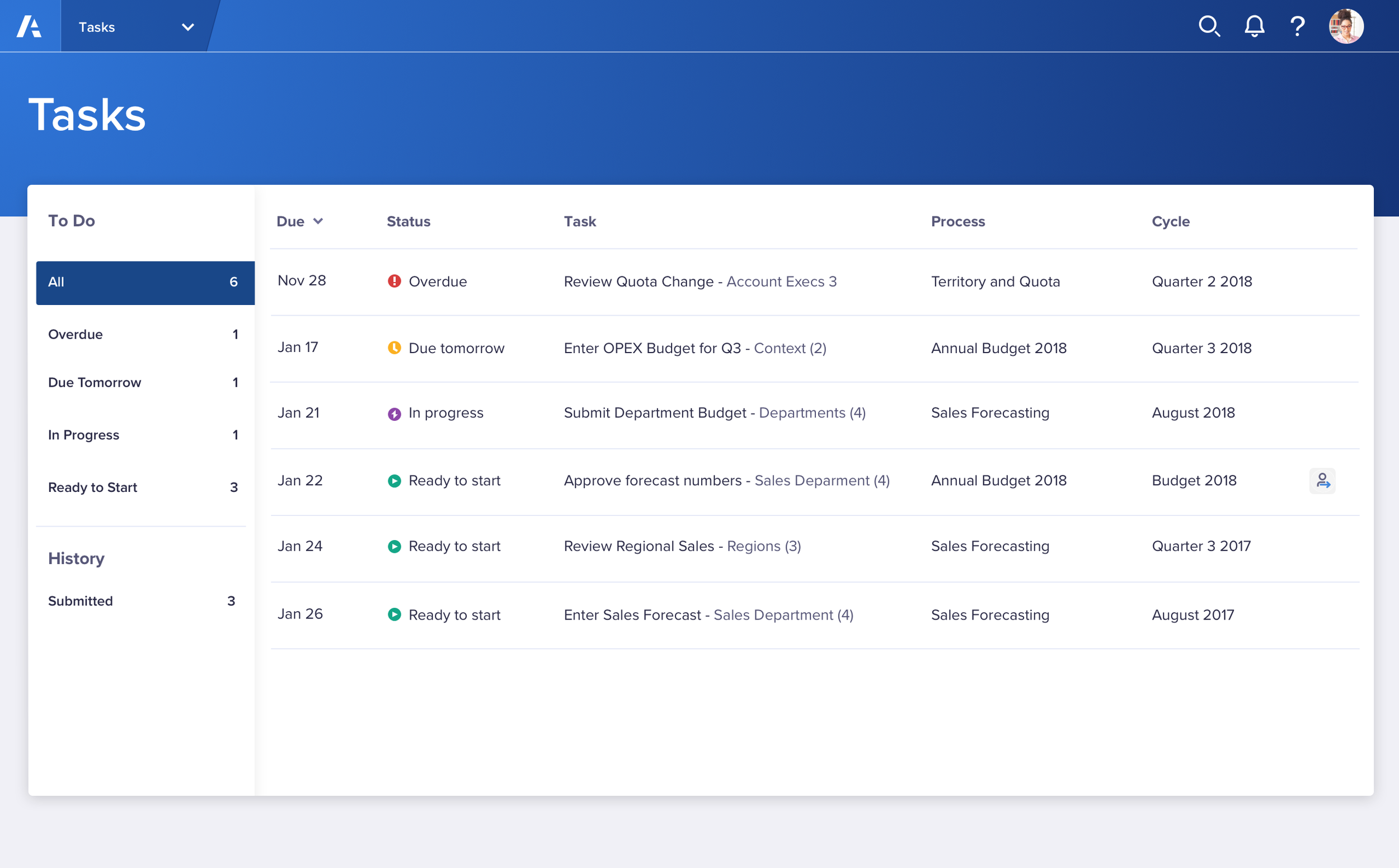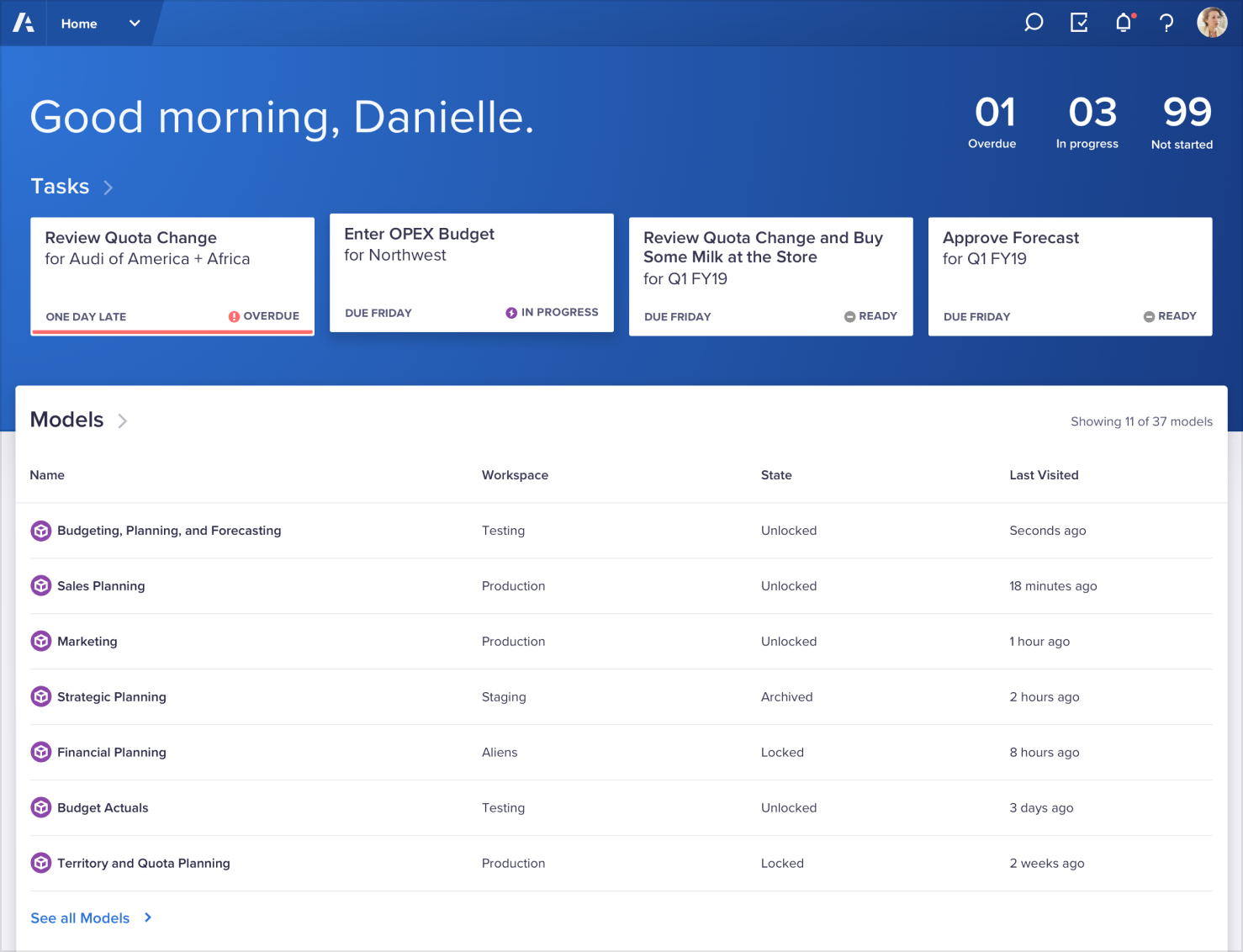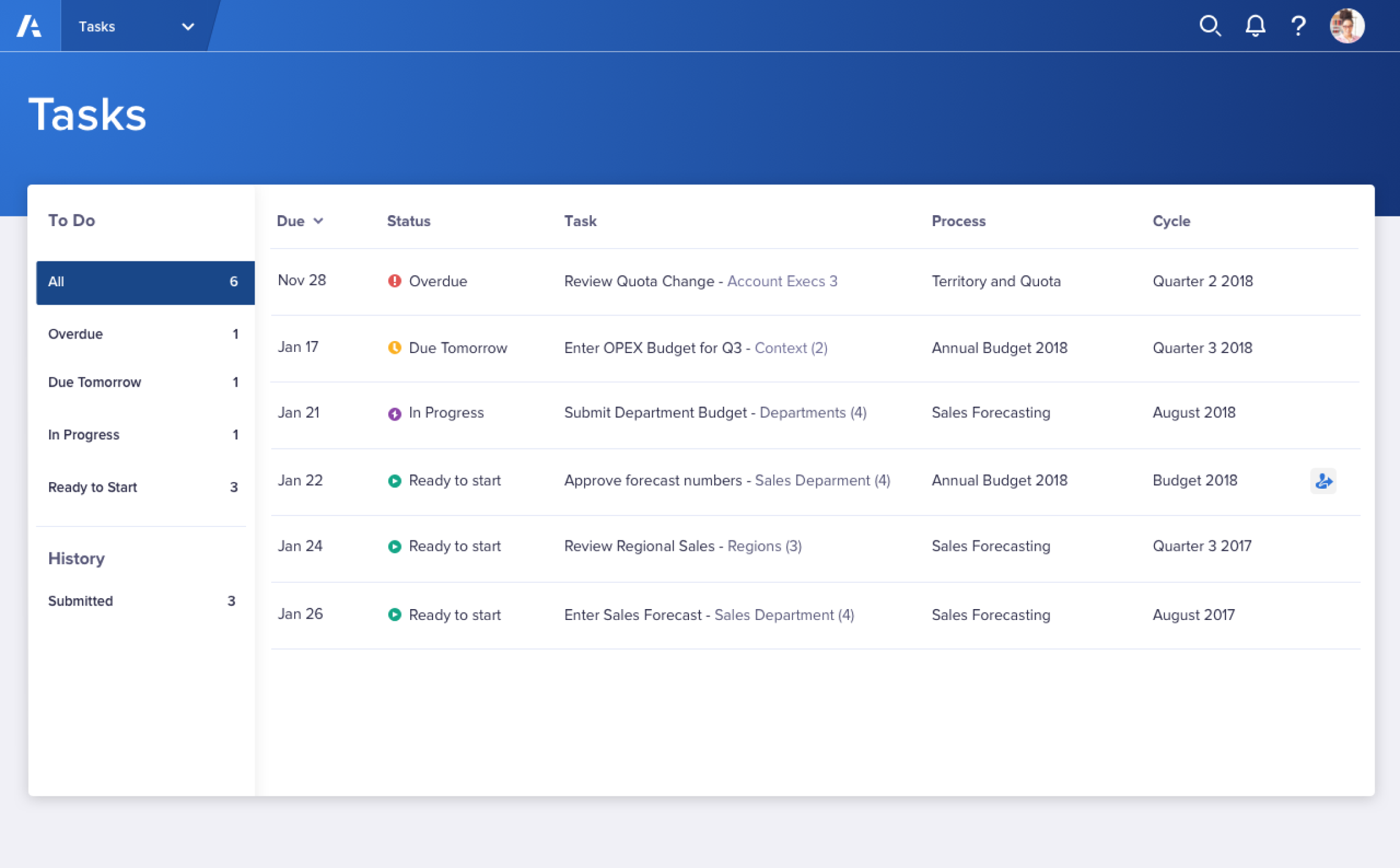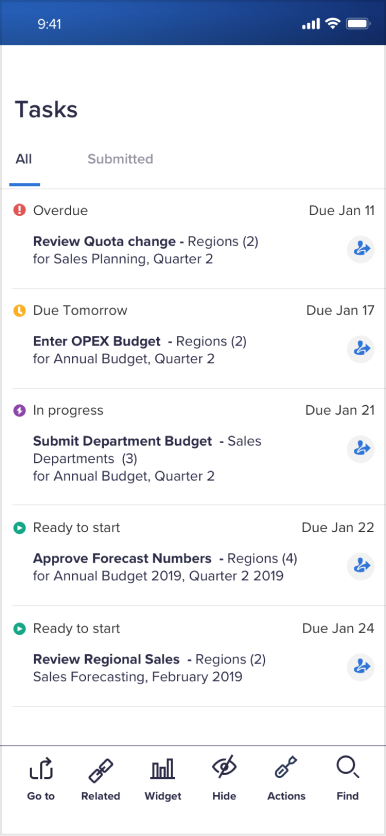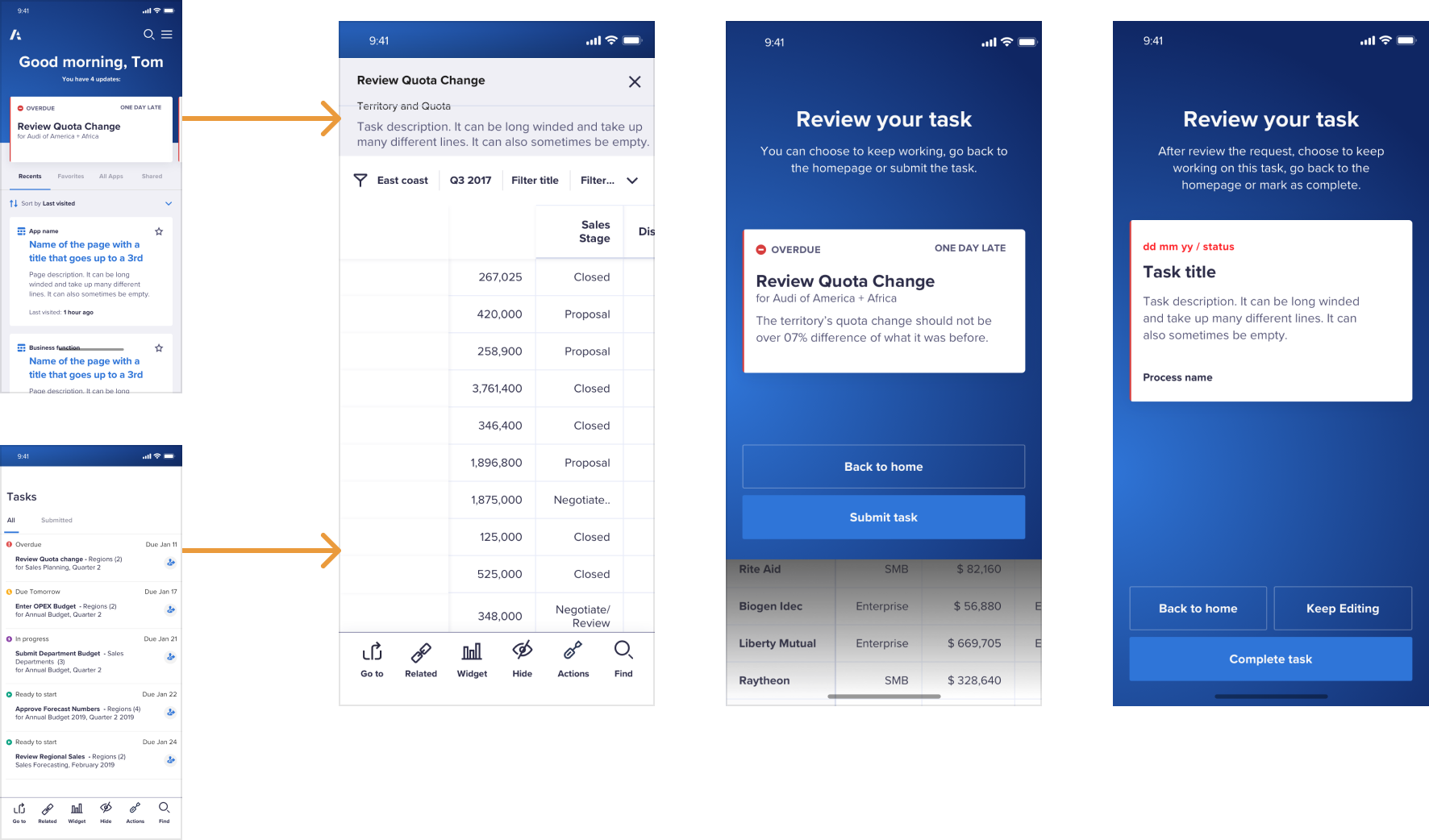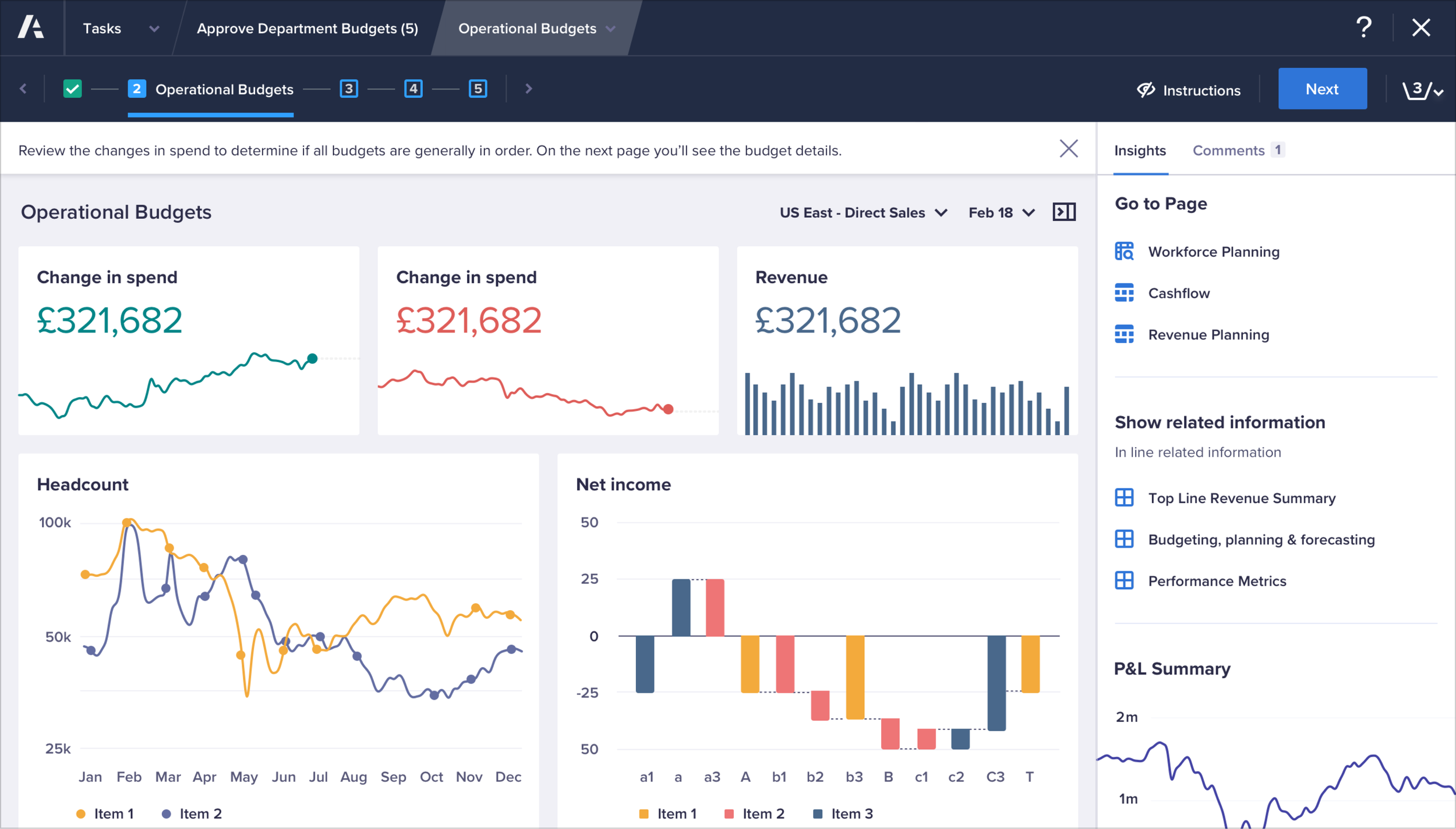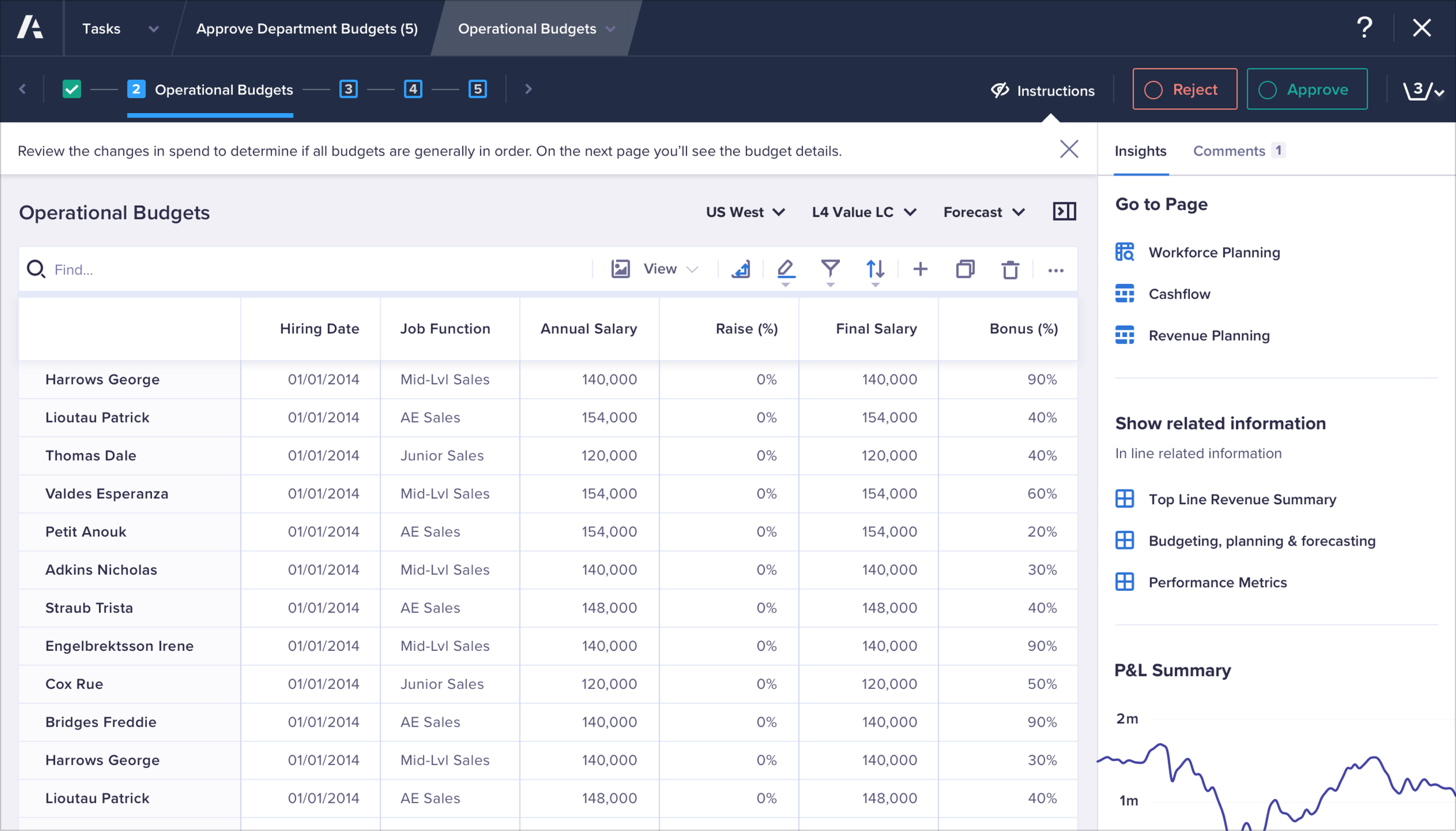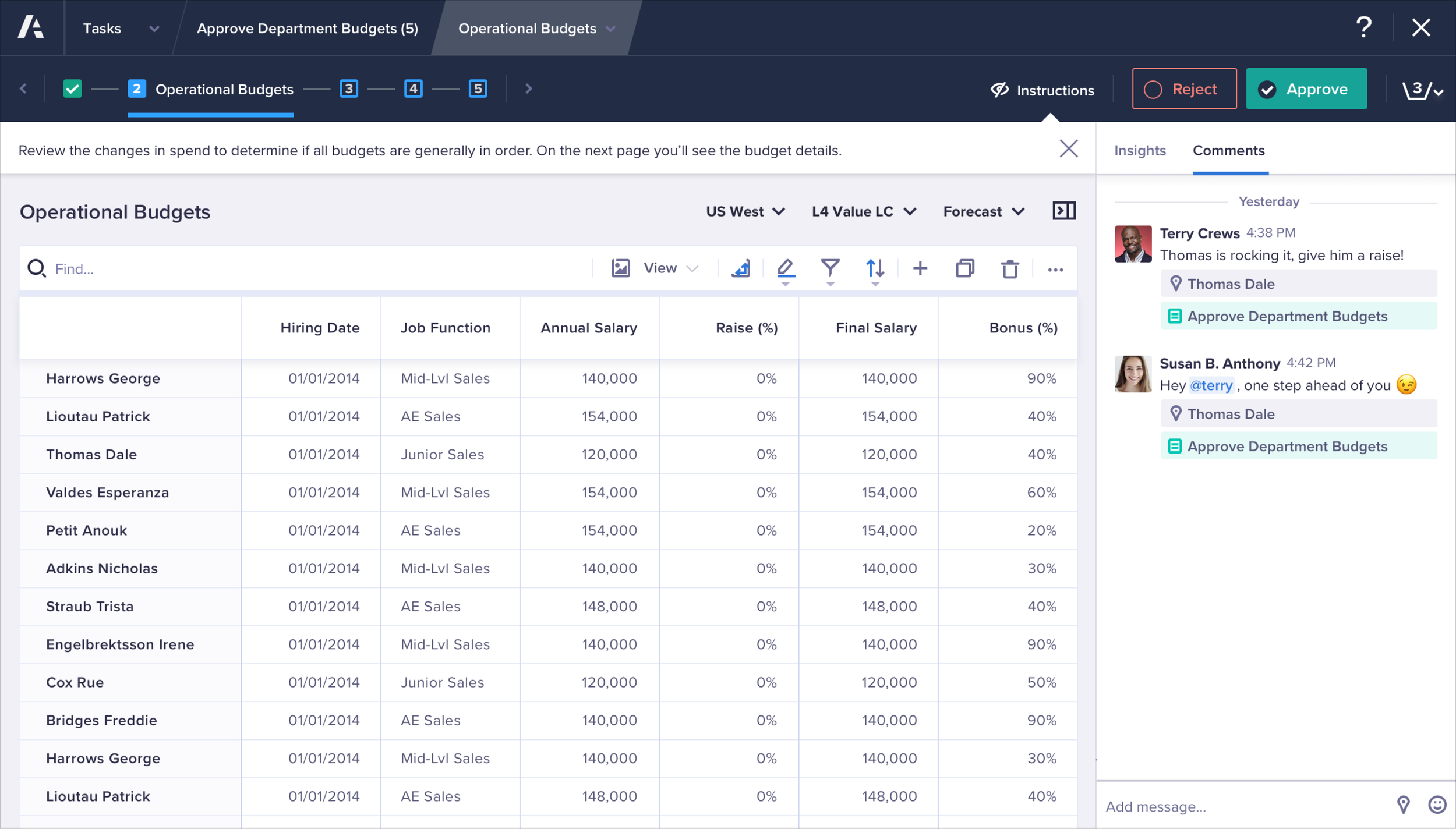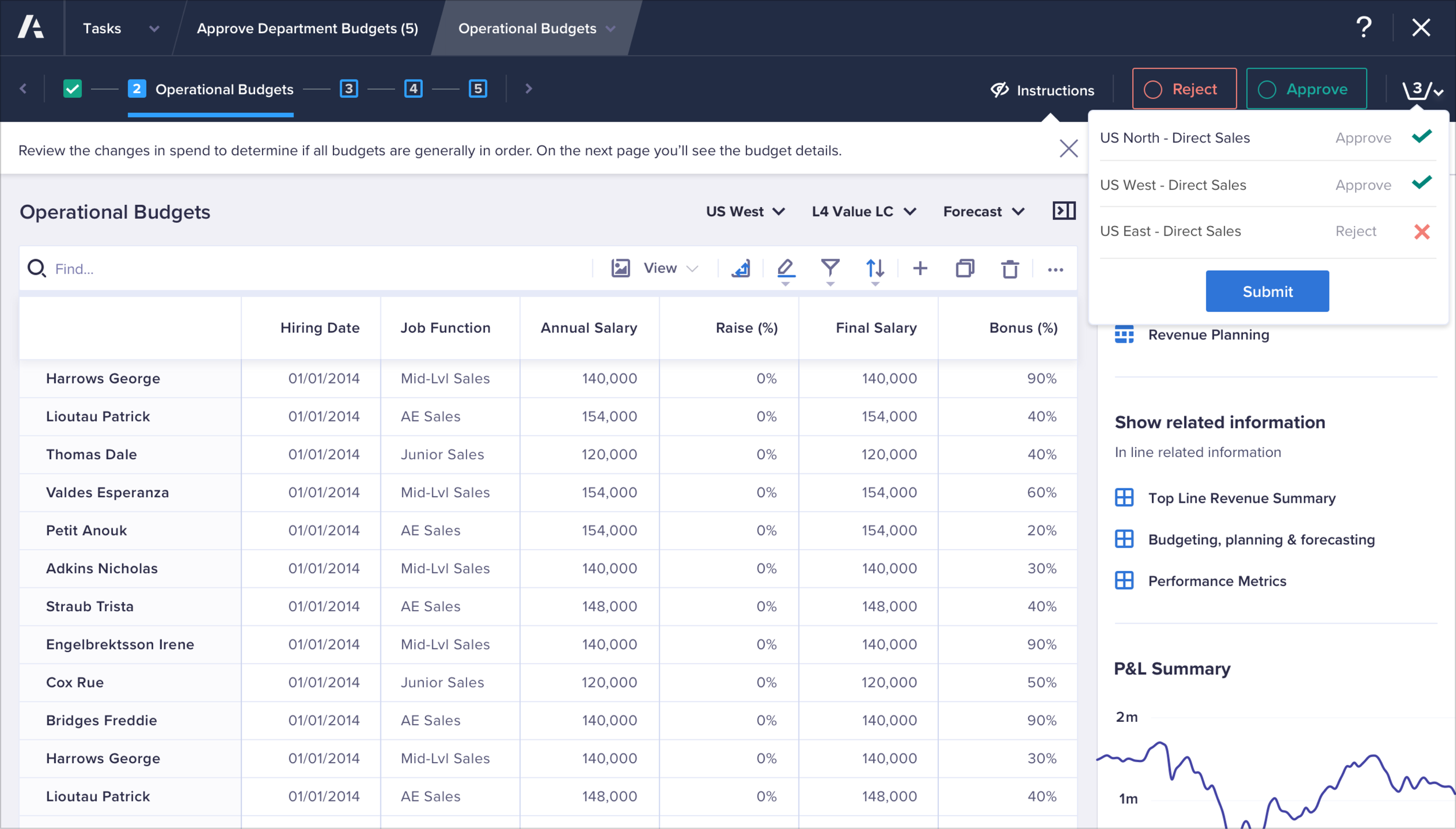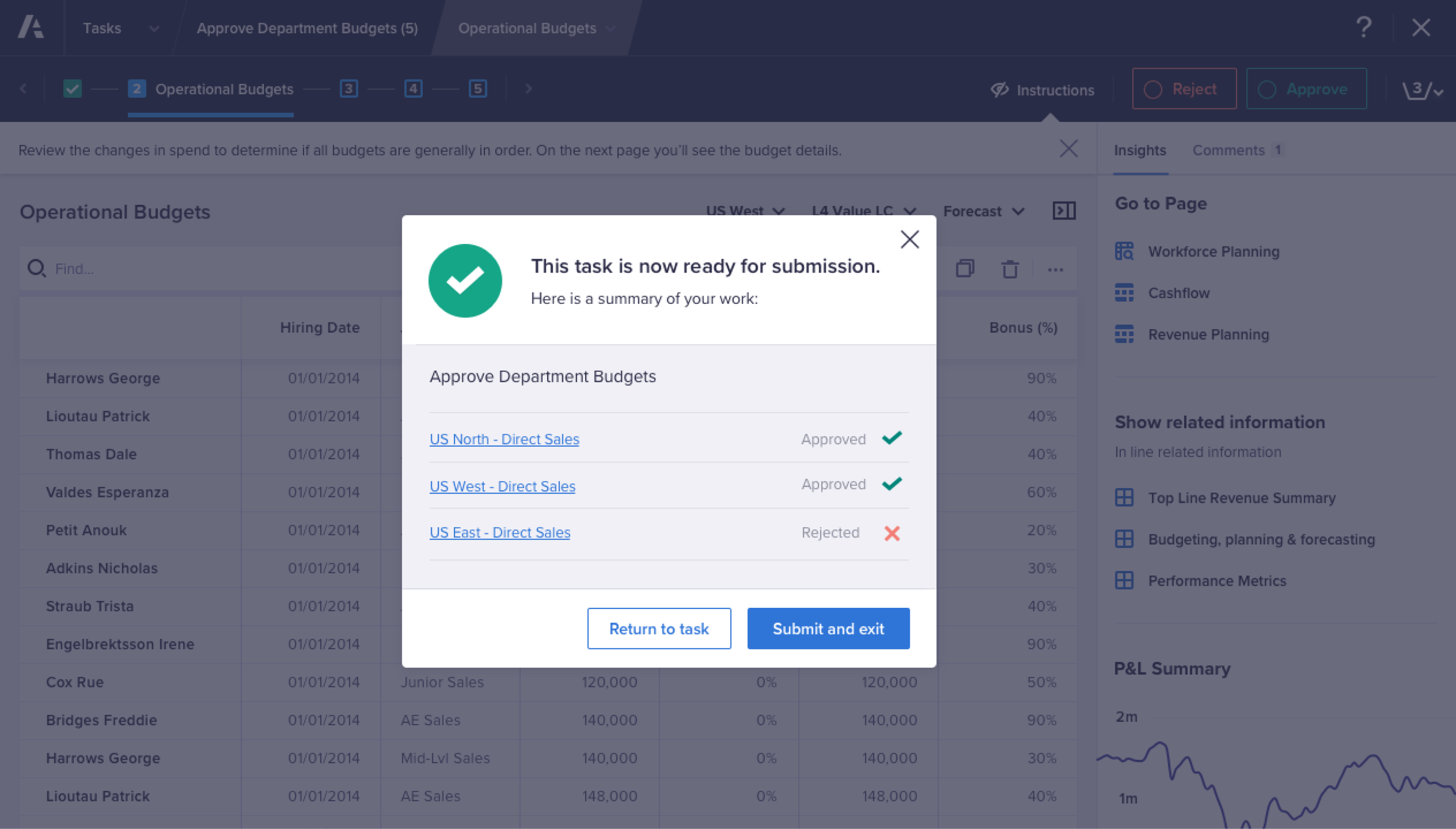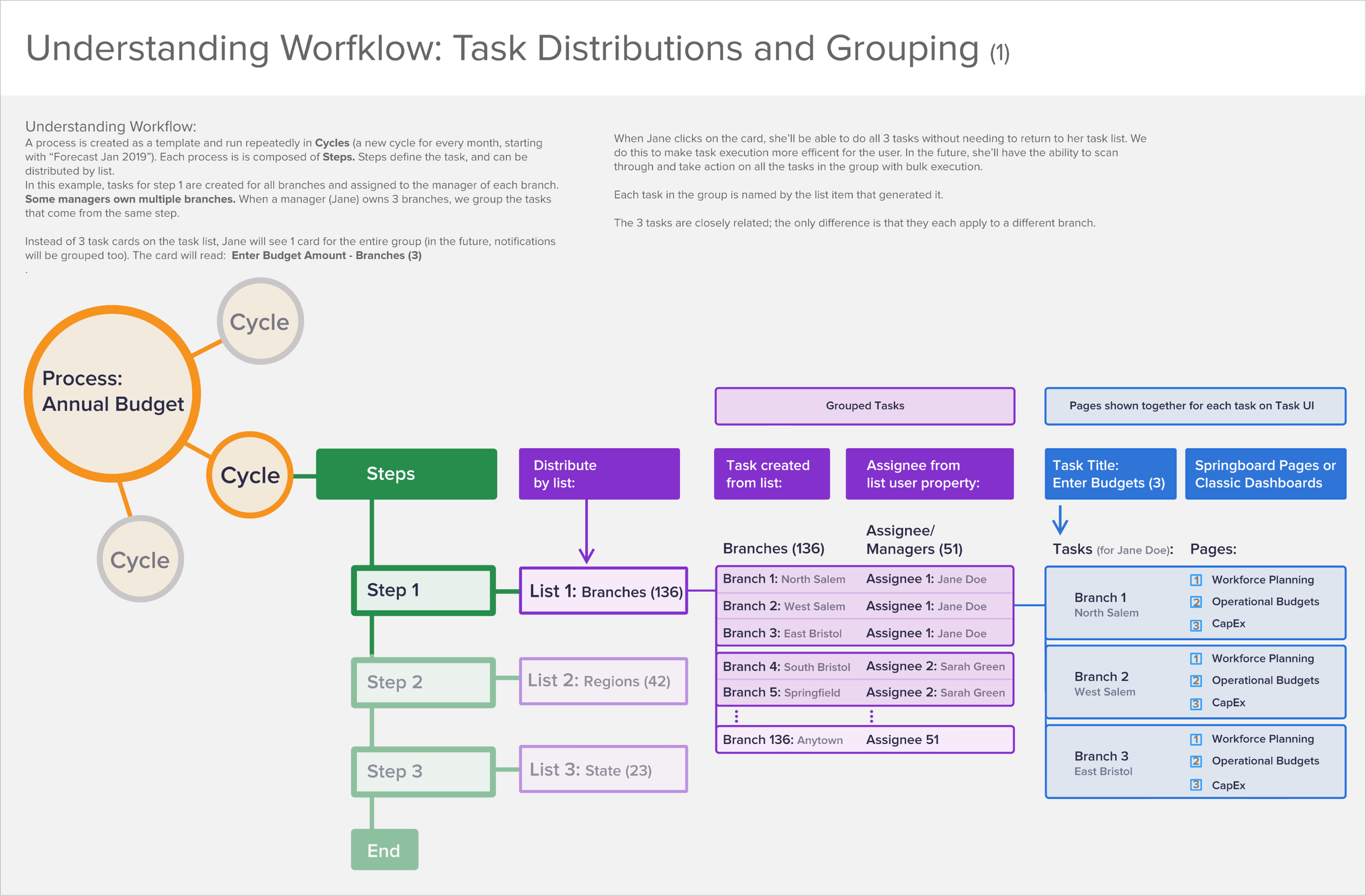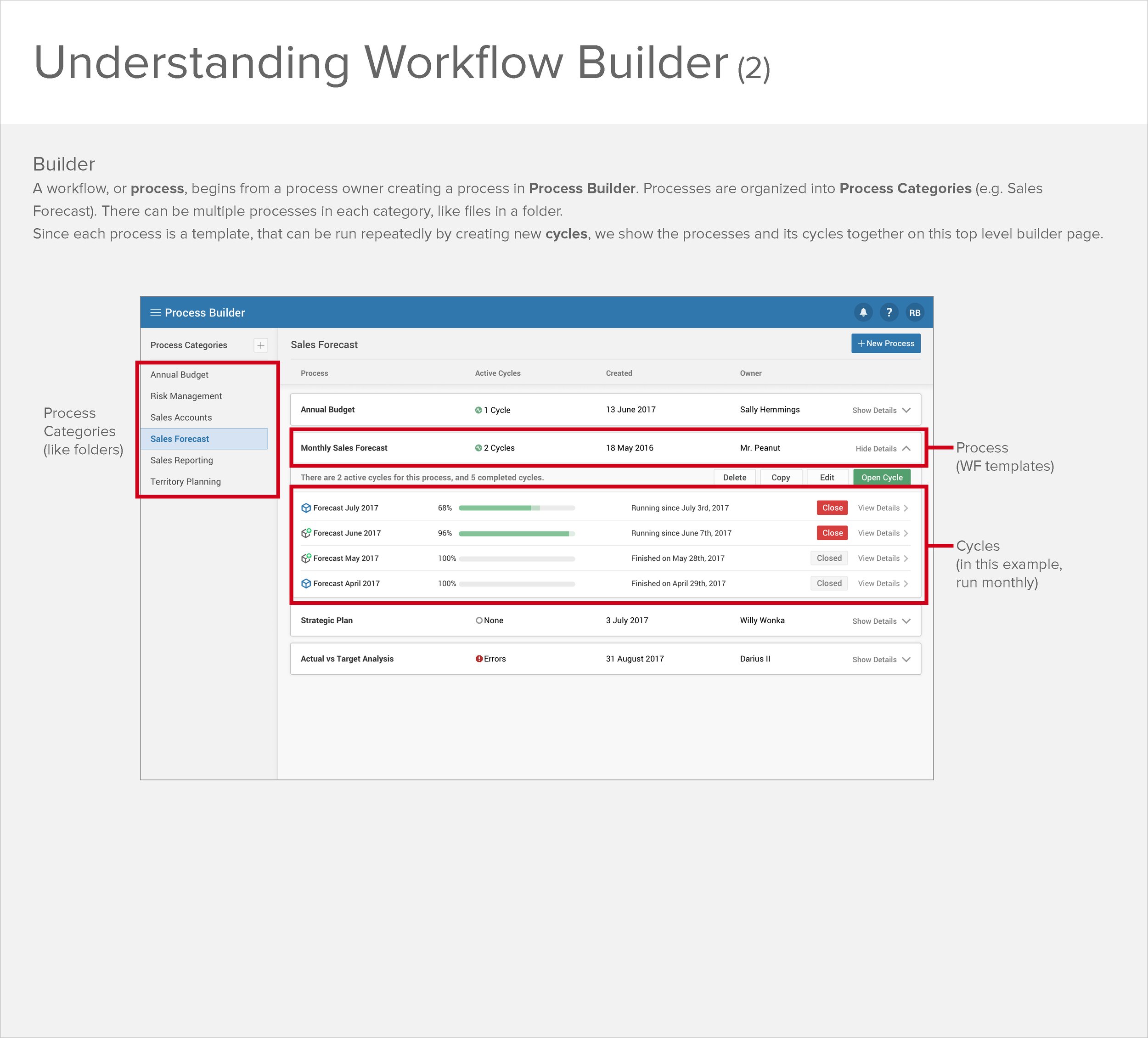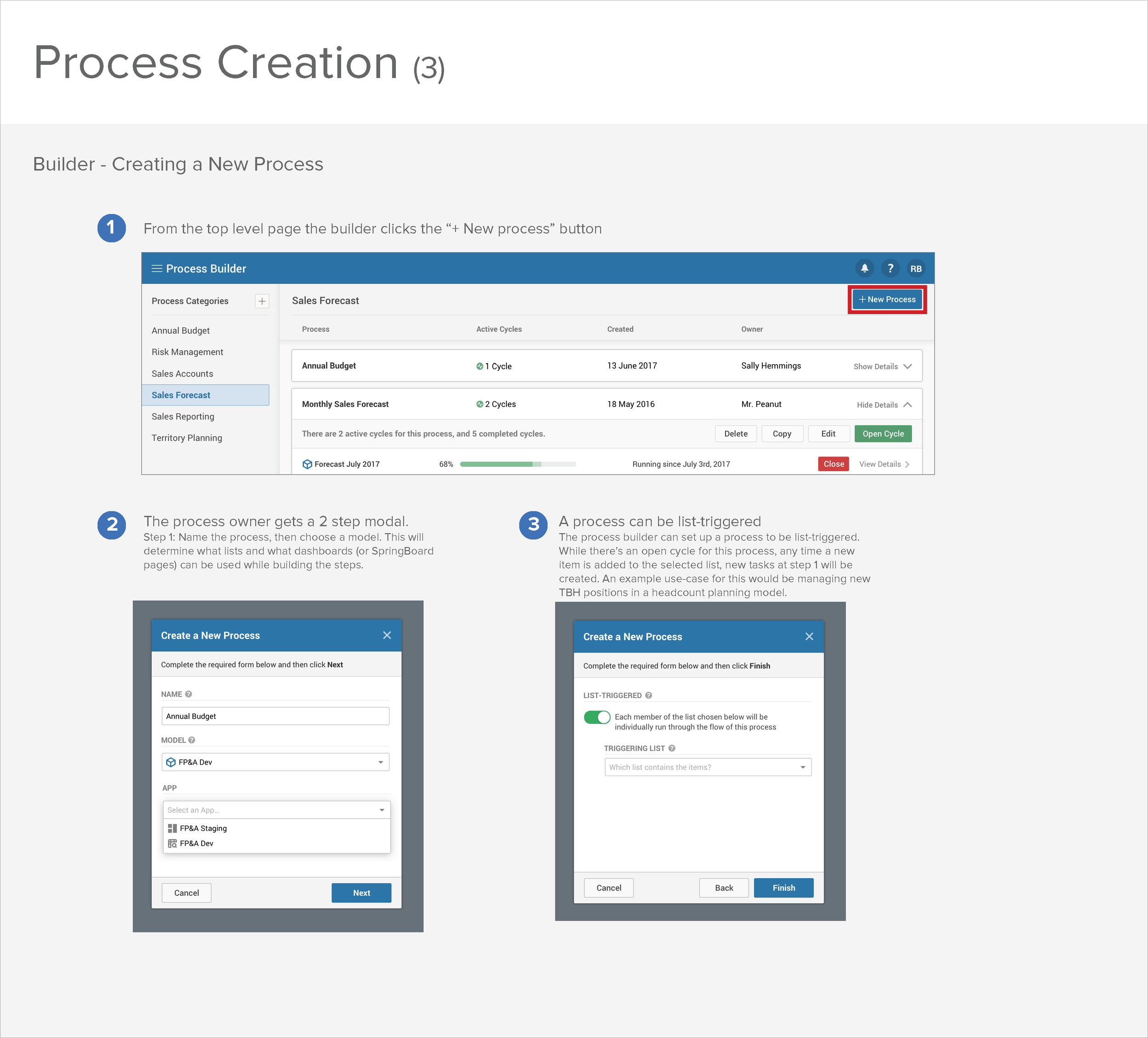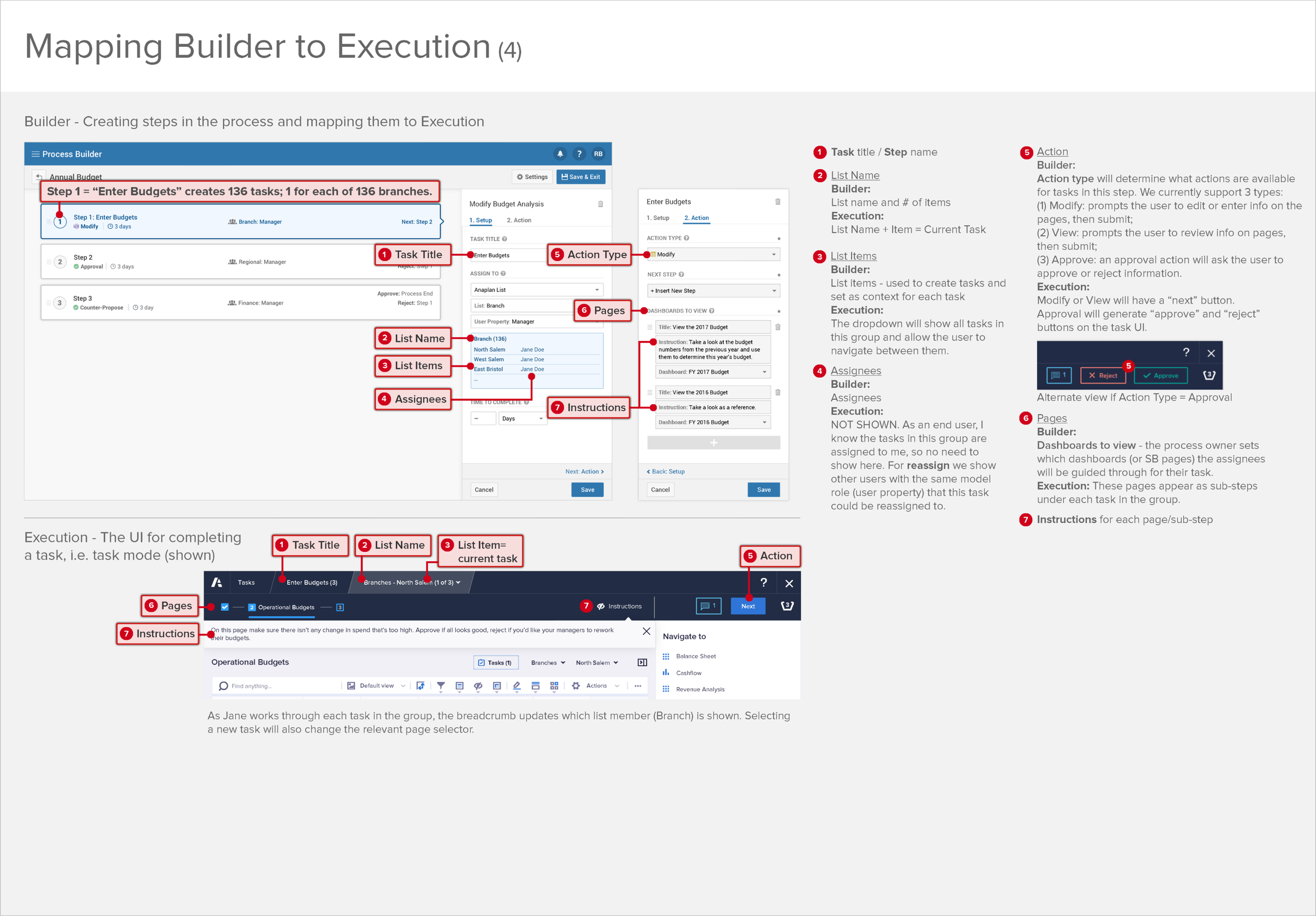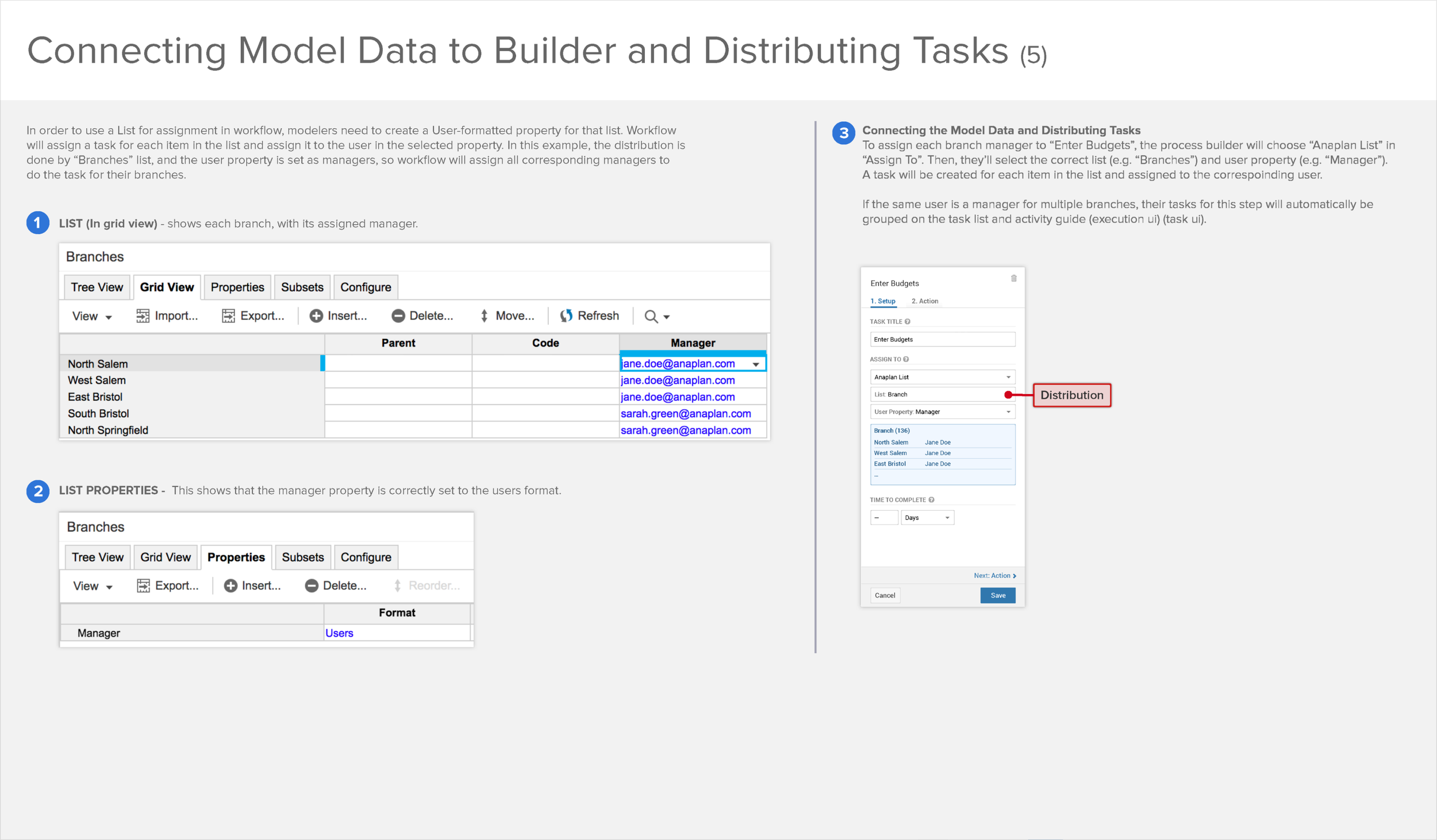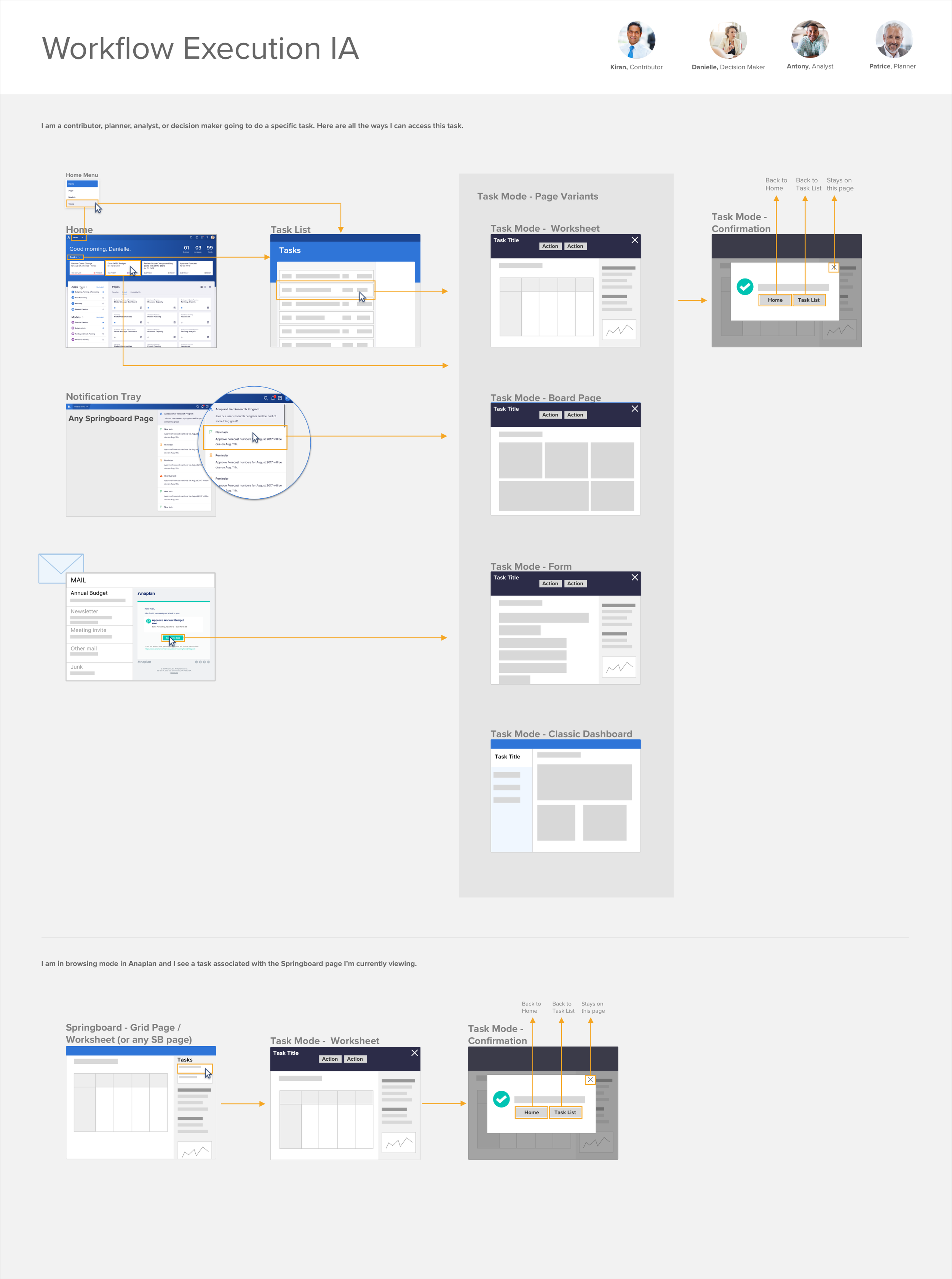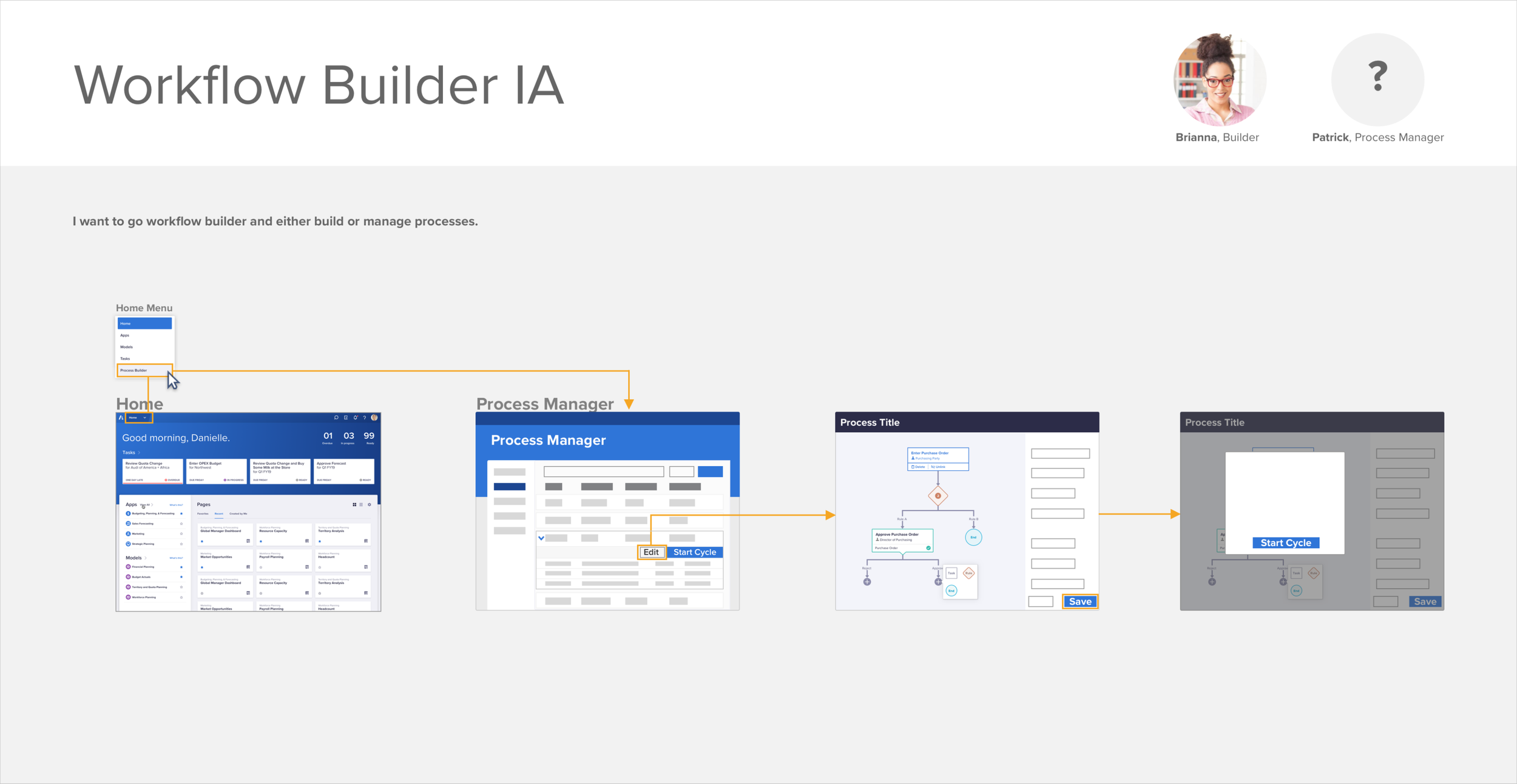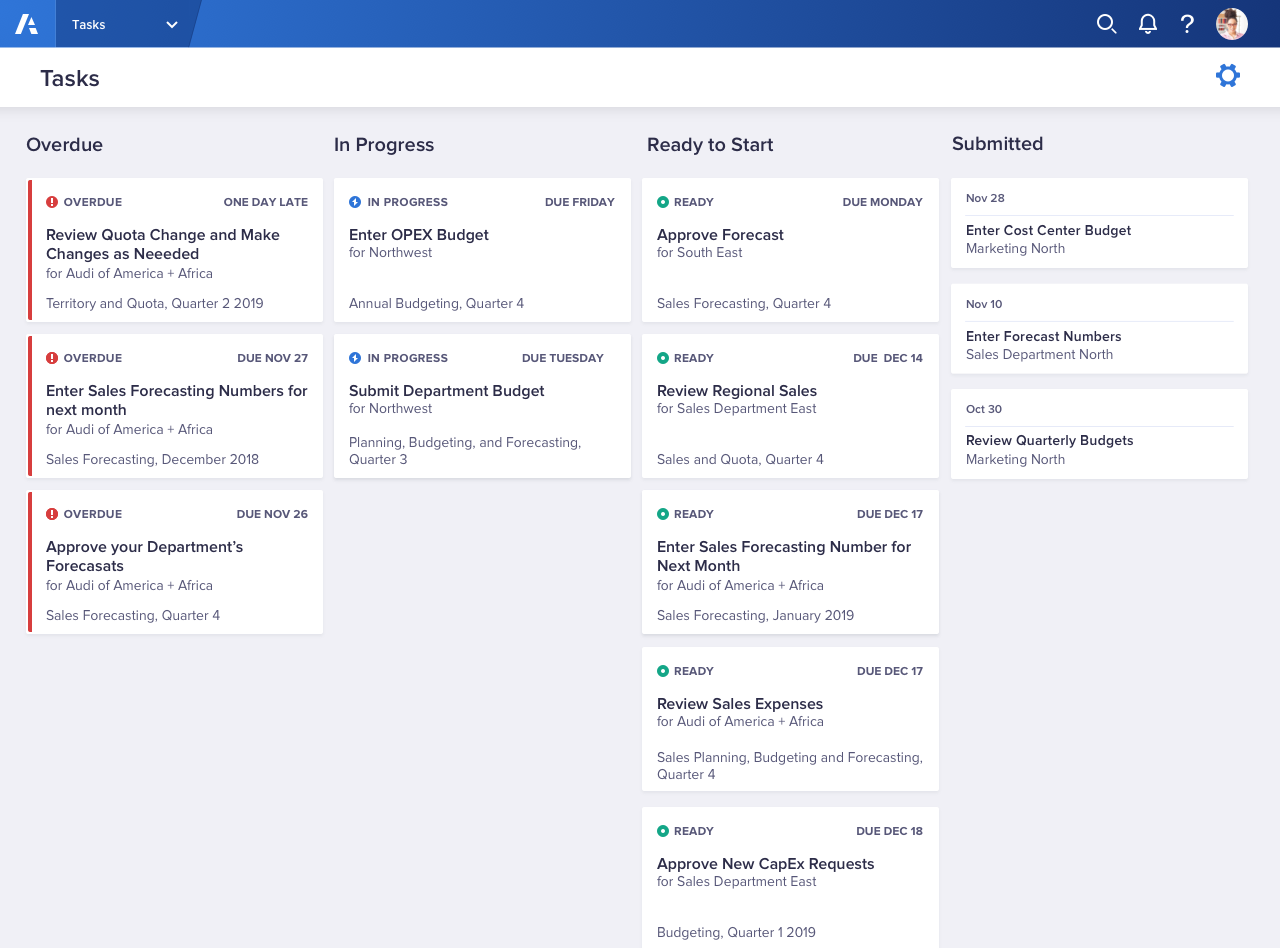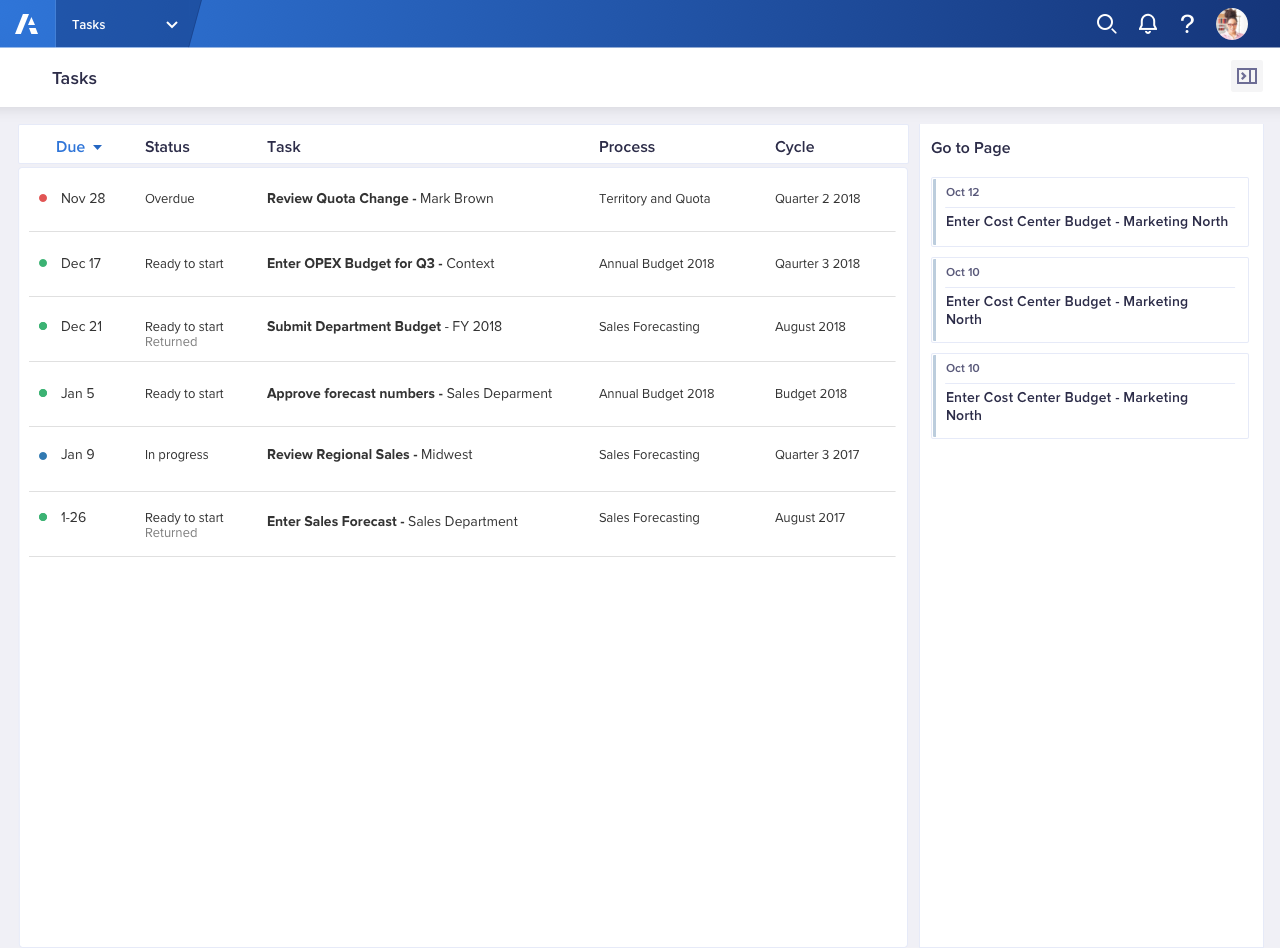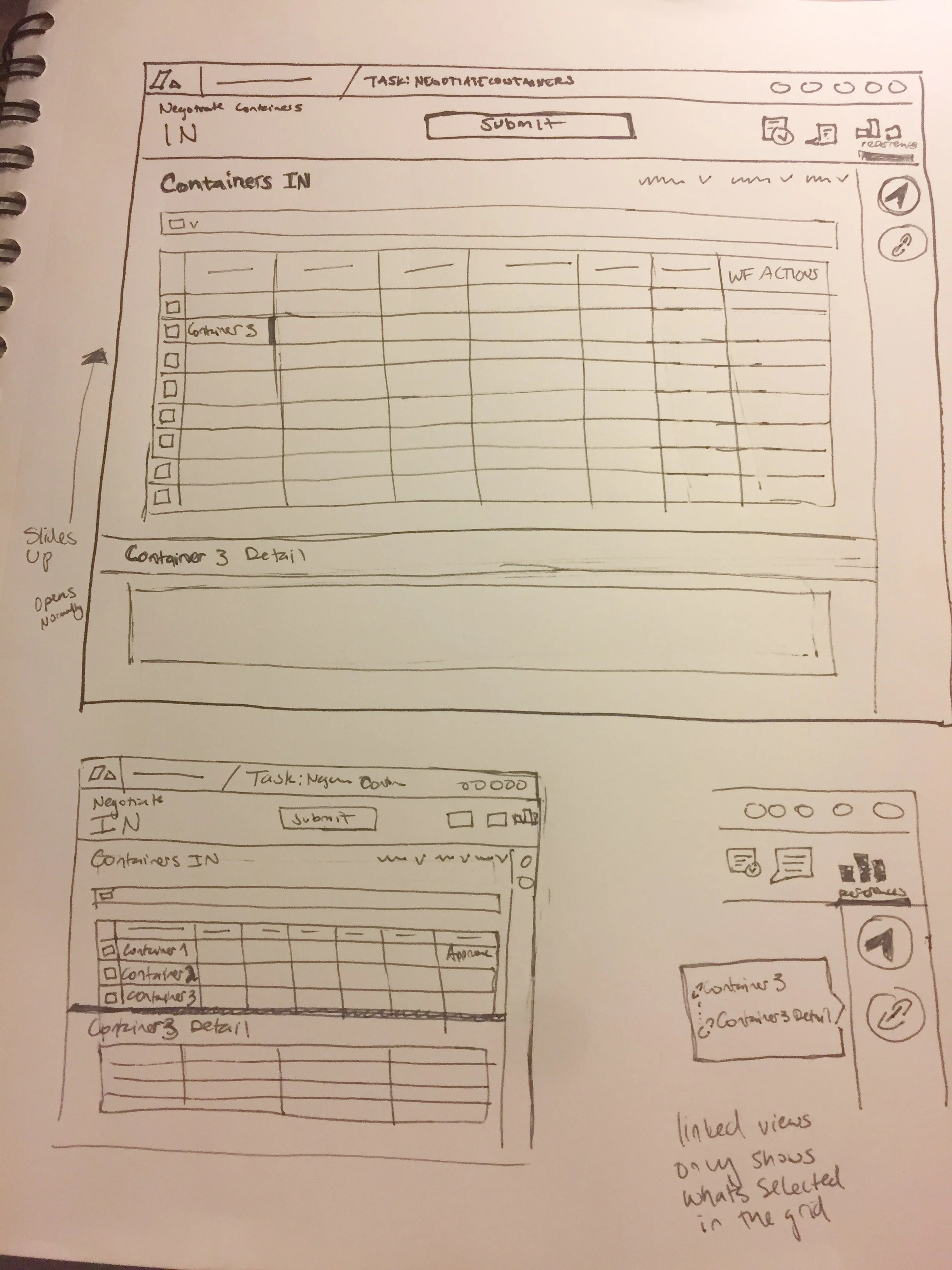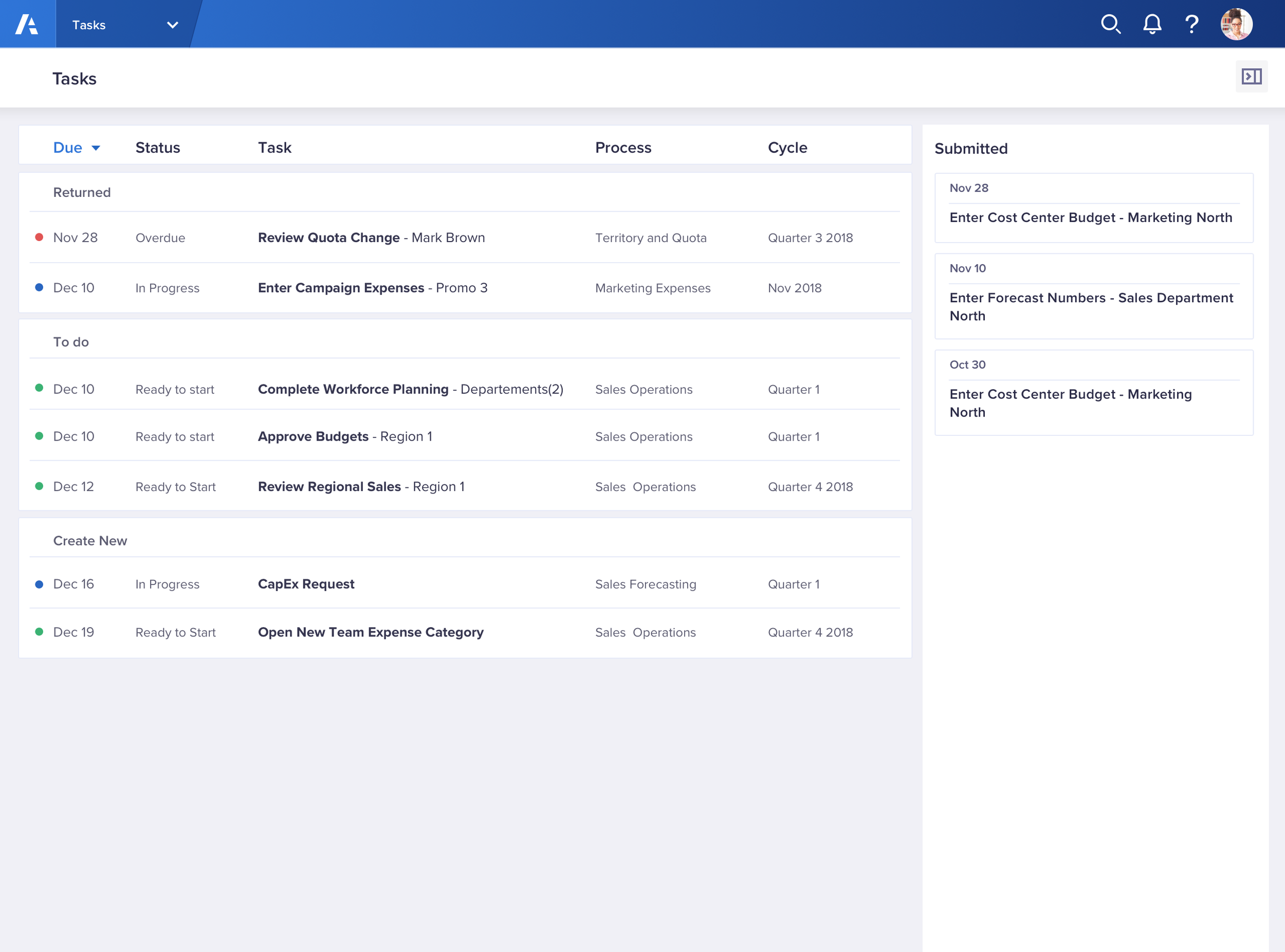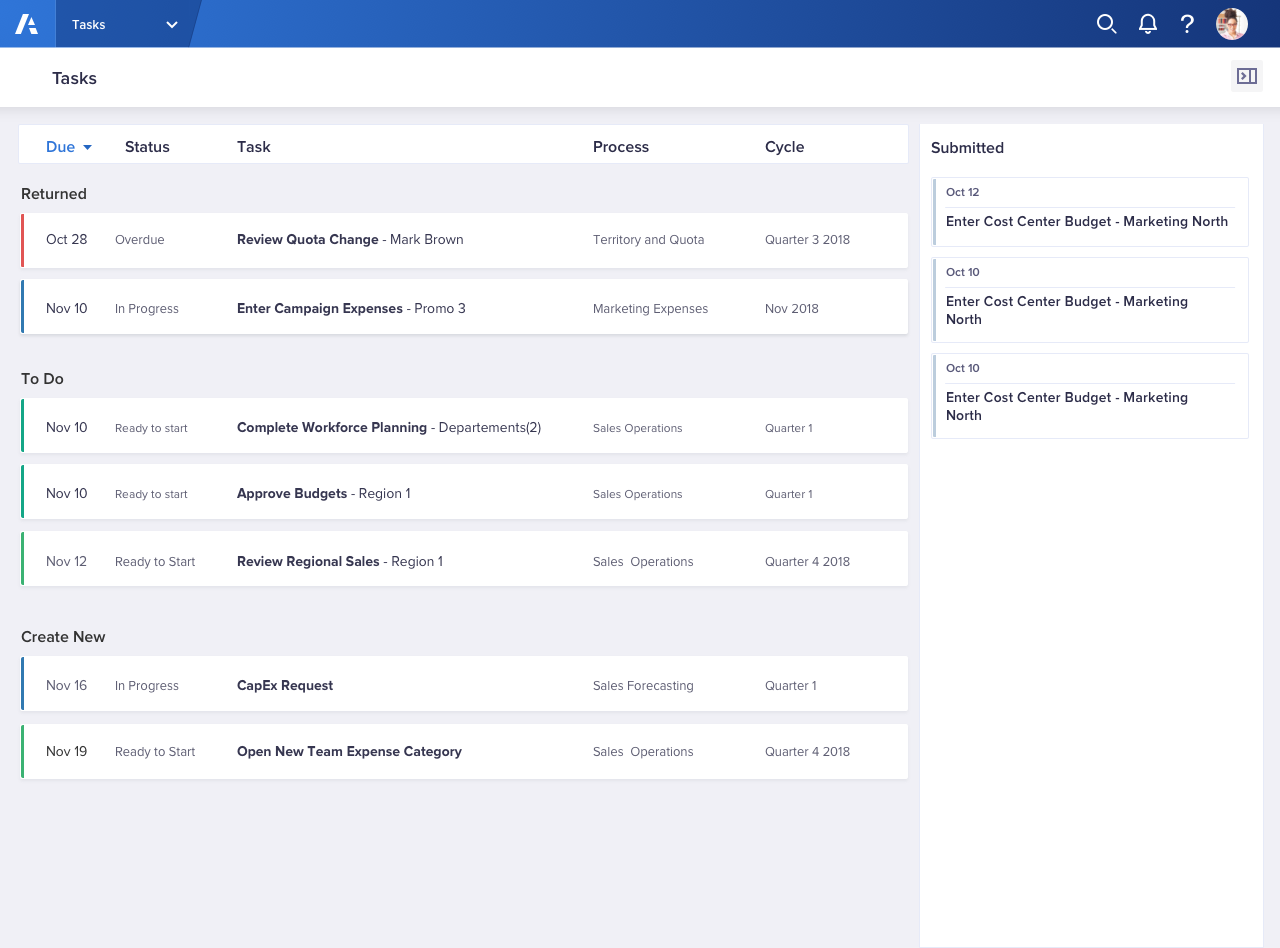
Workflow
Consisting of a “builder” experience and an “execution” experience, workflow helped guide end users in entering data into Anaplan and helped get that data right via approvals.
The more of a customer’s data is in Anaplan, the more powerful it can be. More data means better analytics and planning for the future.
Our customers saw this feature as critical. My early designs for task execution were used to sell a fortune 50 customer, and resulted in a $5M contract signed.
MY ROLE
I led design for the end user experience of workflow, what we called “task execution.”
I collaborated closely with the lead designer for workflow builder.
TEAM
2 UX Designers
2 PM
2 UXR
3 Front end engineers
DESIGN TOOLS
Sketch, InVision
PROJECT DURATION
3 years
OVERVIEW
This features enables builders or admin type personas to create repeatable workflows to streamline the experience of end users, or downstream users who may not be as familiar with the platform. Often times, downstream users may be coming in once a quarter or even once a year to enter numbers.
Workflow serves up tasks via notifications in-product or via email, and takes them exactly where they need to go. It provides instructions and action buttons to complete tasks. Once a task is completed, the next person(s) or level of management is notified that the task is ready for their review or approval.
Workflows are created as templates, and can be rerun as often as necessary. The are useful for processes such as quarterly or annual budgeting, promotions approval, inventory planning etc…

DESIGN CHALLENGES
Designing the Task List and components
Designing the Task Completion experience
• Enabling users to comment on tasks
Supporting work
Understanding task distributions and grouping
Understanding workflow builder
Understanding how a process is created
Mapping from builder to execution
Connecting Anaplan Data and task distribution
Information Architecture for both execution and builder
Early designs and sketches
TASK LIST COMPONENTS
Tasks on Anaplan’s home page: desktop and mobile view. Any part of accessing tasks fell under “Task List”
Task List desktop and mobile view
Completing a task on mobile
DESIGNING THE TASK COMPLETION EXPERIENCE
Task execution on a dashboard page
Task execution on a worksheet page
Task execution on a worksheet page. Also shown: Task commenting could take place between users on the same level of approvals, or up or down 1 level.
The “shopping cart” view I designed provided the ability to multi-approve or reject a distributed task (see supporting work below for distributed tasks).
Final review of a multi-step task before submitting
SUPPORTING WORK
As workflow was a very complex project, I created a series of documents to help both my understanding, and that of my immediate team (development, PM, and UX counterpart (for workflow builder).
These documents were so well received, I was asked to share them with the greater team, including product, sales, and customer success.
INFORMATION ARCHITECTURE
EARLY CONCEPTS
These are several of my early Task List designs we tested against the final version (see above).
A LOOK AT THE PROCESS
